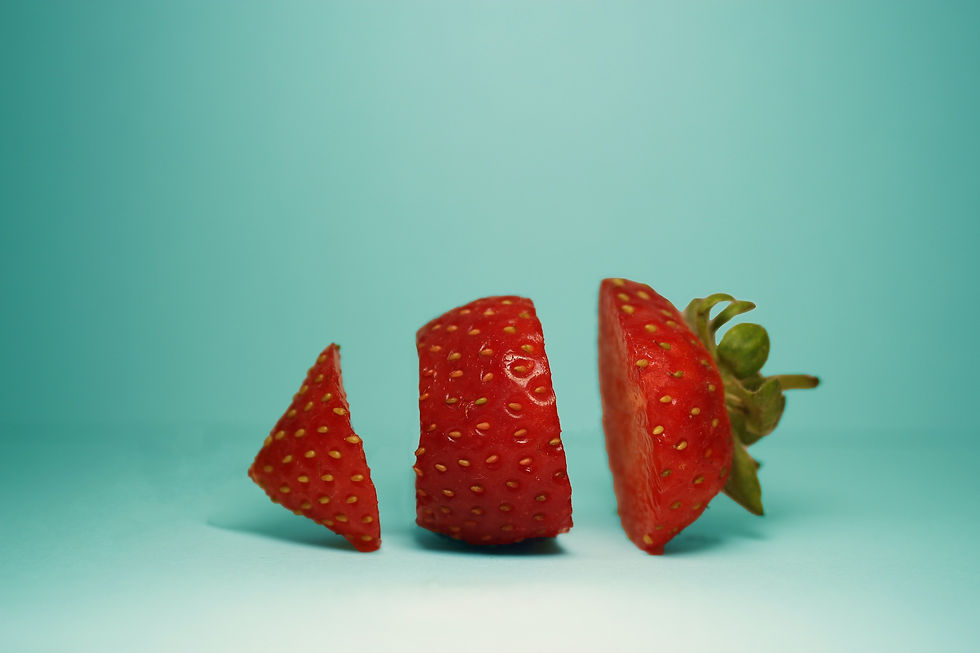10 Reasons Diets Don't Work
- Paige Smathers

- Sep 10, 2018
- 5 min read

My official title is dietitian but promoting diets simply isn't my jam. To make sure we are all on the same page when I use the word dieting, let me define exactly what I mean by the word. When I say diet, I am referring to the restrictive way a person eats when they are trying to lose weight.
In our culture, being on a diet is glorified. We see people who are restricting their eating as somehow above everyone else and praise them for their discipline, their restraint and their willpower. What we often don't realize is that we're really glorifying disordered eating and even eating disorders. Sometimes people who seem disciplined and restrained around food actually have deep struggles with food and body image, and you really can't tell what a person is going through by the way they present to you.
Most people who start a diet end up failing long-term. The goal of a diet is to lose weight and most of the time some kind of weight loss is achieved. The problem happens when the person on the diet goes off the diet—most people end up gaining back the weight they lost with the diet once they go back to their normal way of eating. What I'm saying is this: diets are likely to "work" for the few weeks or months you are on them, but they are not likely to be lasting and sustainable. And, they aren't likely to make you feel good mentally or physically with the emotional rollercoaster they bring with them.
So why don't diets work?
You don't actually learn. Going on a diet implies going off a diet. When on a diet, most people spend the majority of the time dreaming about the foods they will be able to eat when they're off the diet and aren't usually present enough in the moment to introspectively discover how to create changes that will be lasting in their own life. They don't actually learn how to take care of themselves in a loving way because the changes they've made with their eating are temporary and aren't rooted in self-care and self-love.
They aren't sustainable. Not eating any carbs for the rest of your life is just plain not sustainable. It's always wise to ask yourself when you are considering starting an eating plan or "diet" if the rules to the plan are ways you can eat for the rest of your life. Chances are, the answer is no. If the answer is no, find something that is sustainable for you.
They create a vicious mental cycle. When you're on a diet, there are restrictions in what you can and cannot eat. In other words, there are good foods and bad foods. The bad foods are not allowed. A dieter can usually last a few weeks or sometimes months following the diet, but eventually give in and eat the forbidden foods. Usually, the dieter doesn't just eat a small amount of the forbidden foods—usually it's overeating and/or bingeing. The binge leads to feelings of inadequacy and extreme guilt, and then the dieter resolves to be better next time. And so the unhealthy cycle continues over and over again, damaging not only your physical health, but your mental health as well.
Diets lead to craving the forbidden fruit. As was just mentioned, the very act of labeling a food as bad leads to craving that food. It's just human nature to want what we can't have and in my experience, the people who feel the most chaotic and dysfunctional around highly palatable foods are the people who restrict and diet the most.
They damage your relationship with food. In college, we had to try different medical diets (kidney disease, diabetes, heart disease, etc.) to have a better understanding of what people experience who are on those different diets. The biggest thing I learned by following those diets during school was how obsessed I became with food the minute I had all these rules to follow. I found that while I was eating breakfast, all I could think about was what I was going to eat for lunch. When I was sitting in class, I was unable to focus because I was too busy worrying about food and how much I wanted to eat the things I couldn't. Many of the people I work with who are chronic dieters experience these same struggles with a damaged relationship with food. If you want to be at peace with food, healing your relationship with it is essential.
They actually lead to long-term weight gain, not loss. The cycle of making rules about food, eating inadequately and restricting thus leading to a down-regulation in metabolic rate, giving in to the forbidden foods and giving up on your efforts, overeating/bingeing, then recommitting and making more rules is a perfect storm for weight gain and various mental health consequences as well. If diets were honest, they'd warn you that in the majority of cases, they simply don't lead to the results they promise.
It's the very nature of the multi-billion dollar dieting industry for diets to fail. Think about the dieting industry—if diets really worked, all people who want to lose weight would need to do is go on one diet and never look back. It's the very nature of the dieting industry to lead to failure. A dieter who has failed thinks there is something wrong with them and typically doesn't blame the diet. They then look for the next diet that works. They think, "If one diet failed, maybe the next will really work." And the dieting industry continues to make their billions off of people looking to find that next diet that really works.
Dieting leads to all-or-nothing thinking. Diets are very black and white. You're either in or you're out. You're following the diet or you're not. When you slip up on a diet, the diet is over or you have to start again the next day, week, month, whatever. Life is not black and white and neither is health or nutrition. A slice of cake once in a while or a scoop of ice cream on your birthday is okay, and in many cases health-promoting to enjoy those foods with people you love. Moderation is key and freeing yourself from all-or-nothing thinking is key to breaking the dieting cycle and finding peace.
Diets are not nutritionally sound. Cutting out entire food groups or macronutrients just isn't a good idea. Our bodies needs carbohydrate. Our bodies need fat. We need to eat a variety of nutrients and food groups for optimal health. Most diets will proclaim the evils of a certain food group or even an entire macronutrient, and this simple isn't good science. (If you'd like a better idea of how to navigate the science of nutrition, check out Positive Nutrition 101.)
Our bodies have evolved to resist weight loss. The body and mind react to a diet the same way they react to starvation: the metabolism decreases and cravings increase. This down-regulation in metabolism is the body's effort to conserve energy and keep you alive. The mind reacts by becoming intensely preoccupied with foods, especially those that provide quick energy. Eventually, it becomes too difficult to stick to the diet. Overeating ensues and you start to believe you're a failure which has profound mental health implications.
It's normal to be swept away by the latest diet trends. It's normal to think about weight loss and to be tempted by the intoxicating claims that diets make. There's nothing wrong with you if you feel drawn to diets. But, there's another way.
Decades of nutritional science has come back to these principles: moderation, balance and variety.
Diets don't work. But, the good news is, there's a distinction between diets and actual healthy, nutritious eating. They aren't the same thing (as many people make the mistake in believing) so you don't need to believe the lie that says you either choose dieting or total chaos with food. As you work on healing your relationship with food, you can settle into a place with food that's balanced, flexible, positive, healthy and sustainable.




Awesome article! I found the sharing really interesting and super helpful. Your post taught me a ton! Looking forward to seeing more new articles soon! eggy car
Thanks for sharing this informative article. On the off chance that you've concluded that getting thinner is one of your wellbeing and wellness goals, this implies starting a better eating routine. For this purpose, drug geeks provide different tips that can help you while dieting. Visit their website and get more information about health.